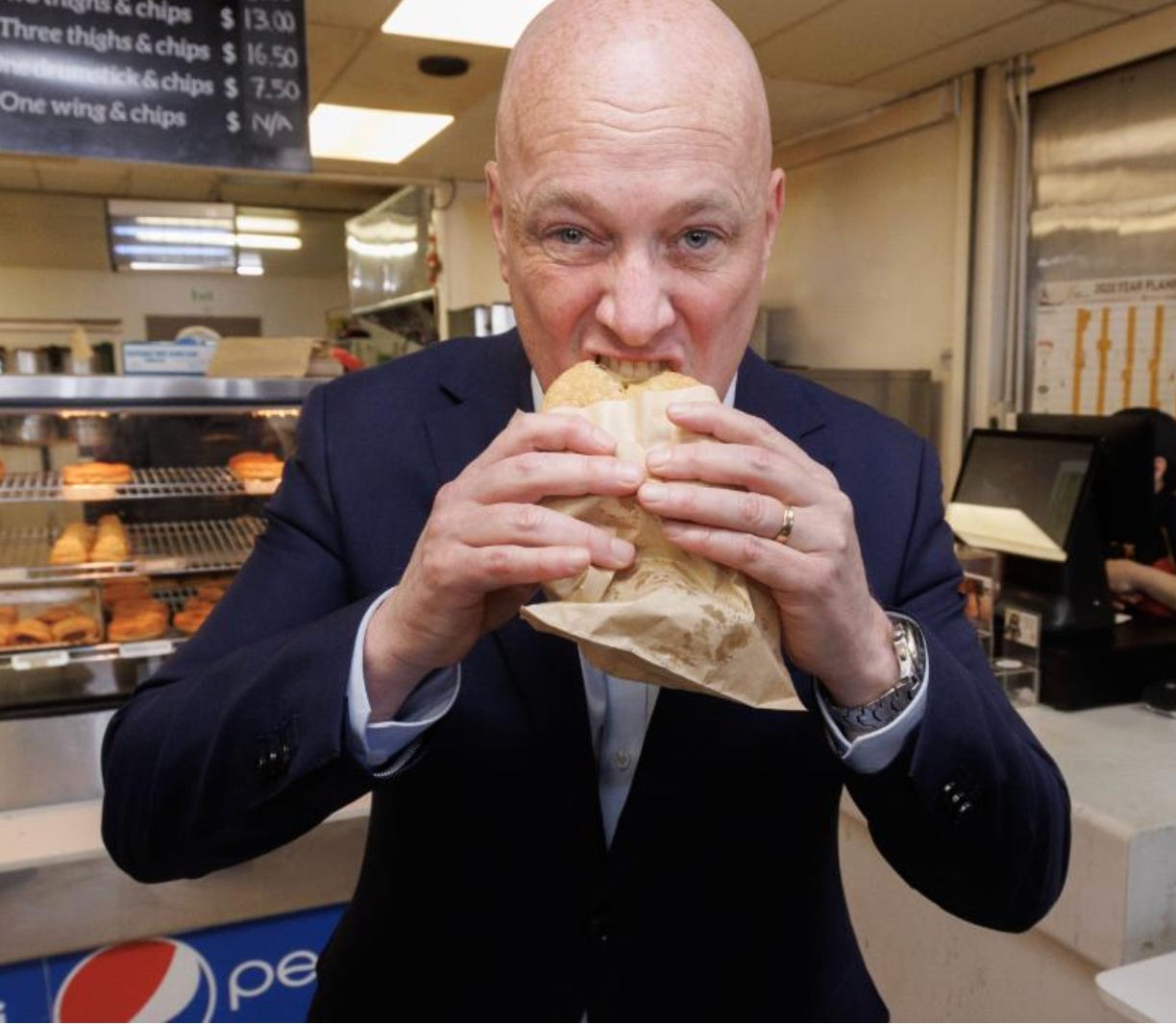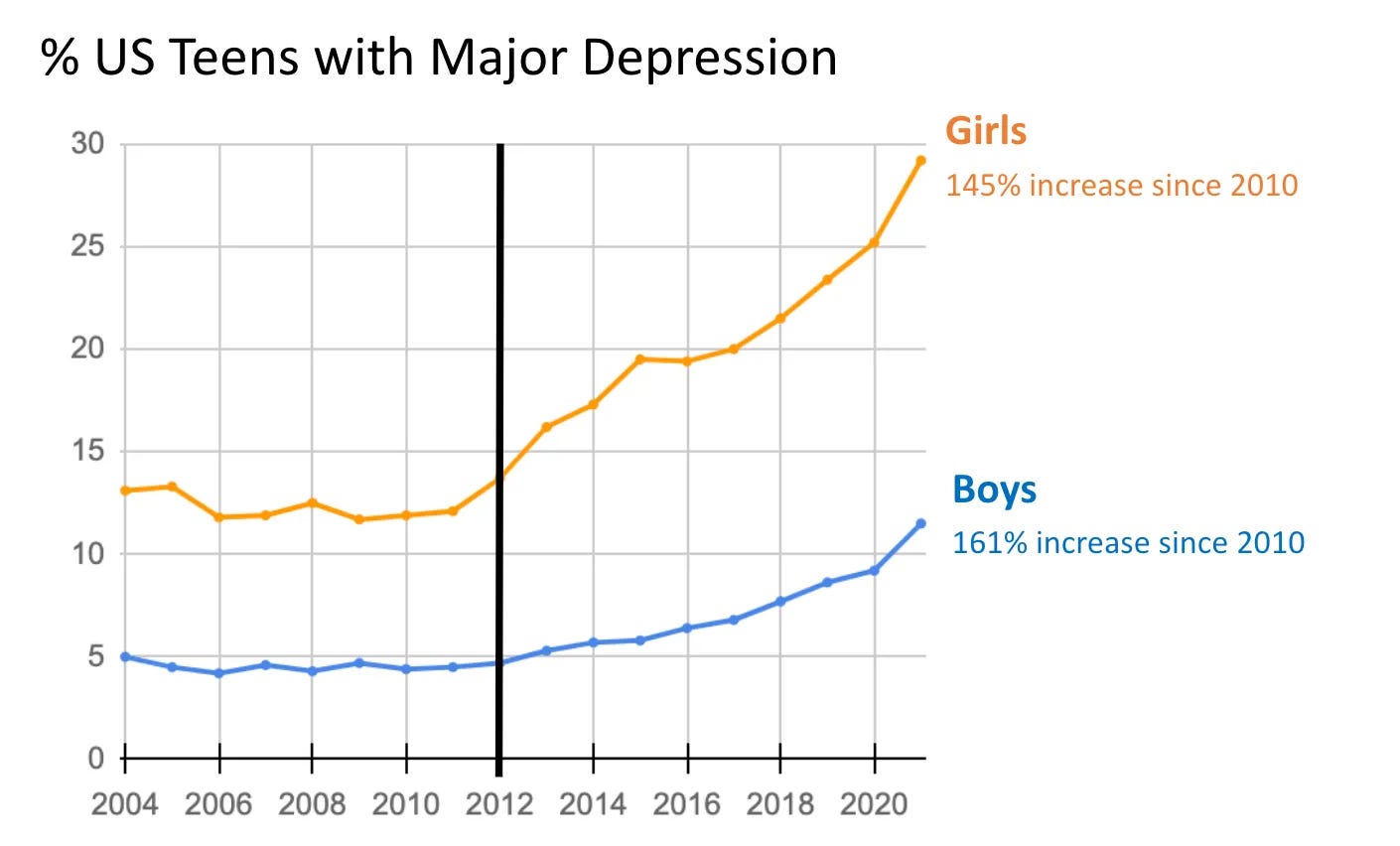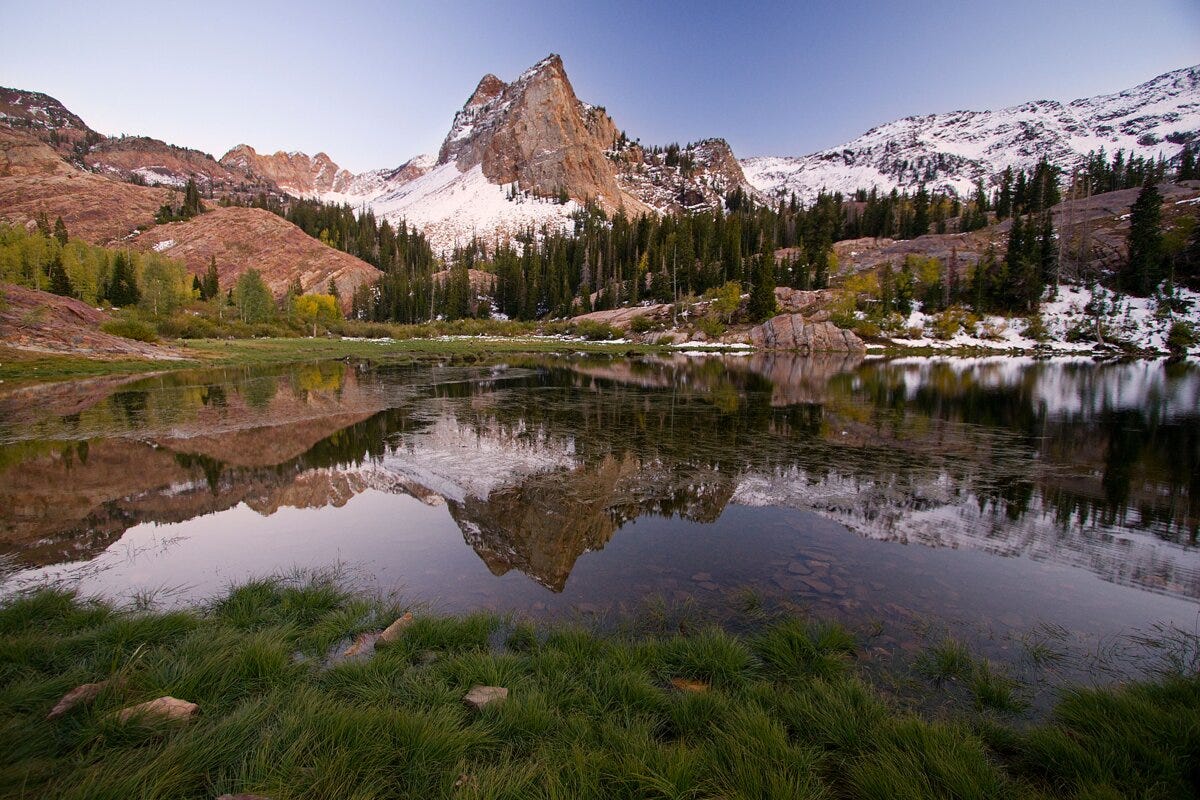New Zealand: The incoming ban on phone use in schools doesn't go far enough
Pairing it with a ban on adolescent use of social media would be more effective
Disclaimer: this article is not an endorsement of any particular political party or ideology. I just want to discuss the phone ban policy from a technologist’s point of view.
As Kiwi readers already know, this year we had an election. A full agreement hasn’t been reached yet, but it’s looking like we will have a combination of National + ACT + New Zealand First. This article is about National’s incoming ban on phones in schools, and why, although it is good, it won’t solve the problem of adolescent screen use. For this, legislation restricting access to social media is needed.
Politicians promise things they don’t deliver on all the time. However with the phone ban policy, I suspect this will be delivered. This is because all it takes is passing the law. Its doesn’t require much additional institutional capacity or investment. They can tack enforcement of the ban onto other compliance audits they do with schools. Here is my summary of the policy, paraphrased from National’s website
Student achievement in NZ has been in decline for 30 years
Many schools here and overseas have experienced positive outcomes after banning the use of cell phones
The details of implementing the ban will be left up to schools
The ban will apply throughout the whole school day
Parents can contact students via the school office
Exceptions will be given to students who need their phones due to special circumstances (i.e health conditions)
It is worth noting that current policy allows schools to enact a ban like this themselves, however many do not as it is a hassle to enforce.
For example, in my hometown of Dunedin, Otago Boy’s High School enacted a ban which had positive results, with the rector(i.e principle) describing it as “one of the best things I’ve done”. According to the article, “The ban was brought in at the start of 2022 because (the rector) was noticing boys staring at screens all break instead of interacting and playing, staff were having to deal with too much cyber-bullying and there was no need for them as an educational tool… (the rector) said he had seen changes since the policy was implemented and it was now normal to see boys interacting and playing together during breaks. Staff were also spending a lot less time dealing with cyber-bullying.”
This ban is a great first step, but ultimately, it doesn’t go far enough if you want to solve the problem of adolescent screen usage.
Network effects create social lock in which can only be addressed with a blanket restriction
As someone who is looking to be a father in the future, I often think about what my screen time policy would be like with my own kids. Knowing about how these social media platforms are designed to maximize engagement makes me think the obvious approach would be a complete ban - no matter how much my kids complain.
However, I’m young enough to remember what it was like to be a kid. Being the only kid without a social media account or phone in this day and age would be a form of voluntary social ostracism. Maybe you can raise your kids to be resilient, and the benefits of being offline would outweigh this social penalty. But it would definitely be a struggle.
This is a network effect - because everyone is on social media, there is a large social utility for being on it. Or in this case, there is a social penalty for not being on it.
If you ban phones in school, this will make it easier for kids to focus, will reduce cyber bullying, and promote the development of better social skills. But this doesn’t stop kids from using social media outside of school hours, on the weekends and during school holidays, which are all big opportunities for kids to socialize. I remember fondly school holidays after year 10 and 11, spending my time skateboarding around, playing basketball, and meeting up with friends to hang out. We had Facebook at the time, but without smartphones it was mostly used to organize meet ups. It pains me to think kids are missing out on these critical experiences of socialization, which a phone ban will not address.
Merchants of doubt means the evidence is mixed - but the precautionary principle suggests a ban

Like most questions in social science, the academic picture of whether or not social media is bad for you is mixed. There are studies out there that point to little or no negative correlation between social media and mental health (which are cited extensively by social media giants). Social psychologist Jonathan Haidt maintains an excellent open source, collaborative review paper on the effect of social media on teen mental health. This is too large to fully dig into here but is worth checking out if you want a deeper analysis of the evidence (here is a great article he wrote talking about it.)
As suggestive as this graph is, we have to remember correlation is not causation. This is emblematic of a larger problem: talking about needing “evidence” of harm before we take action against social media plays right into their hands. It is very difficult to objectively measure something complex like well-being, and by the time we get good evidence of something we already know through common sense, much avoidable harm will have been done.
This is, incidentally, how tobacco and oil companies were able to delay their decline for so long. They employed paid scientific shills, i.e “merchants of doubt” to obscure the scientific picture. Then they said “you need overwhelming evidence of harm before you regulate us”.
Social media is a large divergence from how humans have always interacted with each-other. It is literally a historical anomaly. Never before have children (or adults) had their social interactions mediated by screens. Moreover, its not like social media is a neutral medium for communication (like text messages, which sort of emulate letters). Instead, your communication has piggybacking on top of it an attention hacking algorithm which is specifically designed to maximize your engagement with the service so it can build a model of your personality and target advertisements to you.
”I'm pleased with the strong engagement... Facebook just reached the milestone of 2 billion daily actives.. The progress we're making on our AI engine.. is a major driver of this.”
- Mark Zuckerberg, Meta CEO and Founder. (2022)
The real problem here is something called the attention economy. This is a business model in which user of a service (such as a social media platform or newspapers) are given access to it cheaply or for free. This isn’t out of generosity. Rather, in the course of using the service, you become the product. Your attention to the service is commodified and sold on to third parties who may want to know more about you, sell you something or modify your behavior. Often, it’s all of the above. Allowing children to be targeted by the attention economy is not good for their health.
The precautionary principle says when we approach radical departures from our tried and true modes of being, large evidence is needed of benefit and safety.
The burden of proof is on the social media platforms to show that their products are unambiguously safe before we allow children to use their services. I can’t stop adults using social media - it’s a free country and people do a lot of stupid things. But just like we protect children from other vices because they aren’t developed enough to handle them, we should protect them from social media. It is our moral duty to do so.
There is no reason why we should betray our children so that a handful of companies in a different country can get more ad impressions and post a higher quarterly profit.
Debunking a bad argument - “freedom” to consume and be addicted is not freedom.
An argument people use to reject an adolescent social media ban is that we it would be a restriction on children’s freedom to communicate. However if you think about it, this is the same line of reasoning that was used by capitalists before the ban on child labour was passed. At the time, industrialists (and weirdo economists) said a ban would be an outrageous encroachment on a child’s ability to voluntarily earn a living. However, with the benefit of historical hindsight, we can really see such arguments as self serving. The ban on child labour has protected children from the dissolving force of capital, which turns everything into a commodity. Let kids have a childhood. They can worry about working when they are adults.
In a household, adults restrict the freedoms of children for their own good in many different ways. Because of network effects, social media is a collective problem, and parents can’t solve it with their individual actions. It requires a literal “nanny state” approach - co-ordinated restriction (parenting) through the government, if you will.
This idea that freedom to consume is freedom is of course part of a wider ideological pattern. Because we live in an advanced capitalist society, the economy is premised on growth through consumption. The neoclassical economic framework that dominates our political economy is focused on the self interested, rational consumer maximizing their own utility by buying goods and services. This is in contrast to different modes of economic thinking that focus on other aspects of economic life, such as production, technology, and work. The way we frame the debate to focus on the freedom to consume is a political choice, influenced by an economic ideology we are all steeped in.
To put it in a broader historical concept, the ancients would laugh at us and say that being addicted is a bad form of freedom. Indeed, the religious concept of sin is that when we follow our baser desires and commit sin, it becomes more difficult to act in accordance with our higher values. Sin is not really about guilt ( a common misconception), but is about protecting yourself from behavioral patterns that will degrade you. It is a very modern point of view that the denial of consumption and pleasure is a form of oppression, and it is worth asking ourselves who benefits from this belief.
A sample social media regulation from Utah
According to the U.S News and World Report, which compiles statistics about various US states, Utah ranks first in the USA overall in quality of life. It is first in economic performance, with almost zero unemployment and high economic growth. It is first on financial stability, fourth in infrastructure, fifth in education and seventh in healthcare. Utah has some things figured out.
Utah is also forward thinking when it comes to the impact of technology on its youth. Recently they limited underage access to social media. The “Utah Social Media Regulation Act” (which kicks in on March, 2024) ensures that social media companies must do the following (taken verbatim from this official government information website)
Verify the age of a Utah adult seeking to maintain or open a social media account
Get the consent of a parent or guardian for Utah users under age 18
Allow parents or guardians full access to their child’s account
Create a default curfew setting that blocks overnight access to minor accounts (10:30 pm to 6:30 am) which parents can adjust
Protect minor accounts from unapproved direct messaging
Block minor accounts from search results
Additionally, it puts the following restrictions on social media companies should parents consent to their children using their services:Companies cannot collect a minor's data
Cannot target minor’s social media accounts for advertising
Cannot target minor’s social media accounts with addictive designs or features
Overall, I think this legislation is a great example of a common sense regulation that the incoming government would be wise to pursue. Its emphasis on needing explicit permission from parents for their kids to use the service would break the chain of network effects. As soon as some kids don’t have social media, it is no longer a problem if your kid opts out. And when children do use the service, it protects them from its worst aspects like addictive features and night-time browsing. Overall I think this legislation is a good starting point for how National could approach a social media ban, which when combined with the school phone ban would undo a lot of the current harm that social media is doing to our children.





